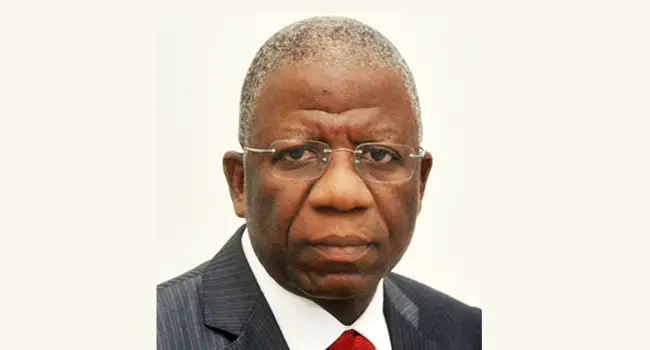Former President Goodluck Jonathan inaugurated the Presidential Committee on the Rationalisation and Restructuring of Federal Government Parastatals, Commissions and Agencies. He appointed Stephen Oronsaye to head the committee in 2012.
President Bola Tinubu on Monday ordered the full implementation of the Oronsaye report.
The implementation signifies that several agencies of the government would be merged, subsumed, scrapped, and relocated.
Mohammed Idris, the Minister of Information and National Orientation, revealed this to State House correspondents after Monday’s Federal Executive Council meeting at the Aso Rock Villa, Abuja.
In this article, Vanguard disclosed 10 key things to know about the Orosanye report:
1. Former President Goodluck Jonathan inaugurated the Presidential Committee on the Rationalisation and Restructuring of Federal Government Parastatals, Commissions and Agencies. He appointed Stephen Oronsaye to head the committee in 2012.
2. The report came out as an 800-page document that recommended the scrapping and merging of 220 out of the then-existing 541 government agencies.
3. The report, If implemented, will cause more than 100 heads of agencies and parastatals to lose their jobs.
4. It recommended the reduction of statutory agencies from 263 to 161 as well as the abolition of 38 agencies, the merger of 52, and the reversion of 14 to departments in ministries.
5. The document proposed the management audit of 89 agencies capturing biometric features of staff as well as the discontinuation of government funding of professional bodies/councils.
Related News
FEC approves merging, scrapping of MDAs
Equity market drops N51bn
I’ve no plans to dump PDP for APC – Ortom
6. Also, the Oronsaye report disclosed that the government would be saving over N862 billion between 2012 and 2015.
7. The breakdown showed that about N124.8 billion would be reduced from agencies proposed for abolition; about N100.6 billion from agencies proposed for mergers; about N6.6 billion from professional bodies; N489.9 billion from universities; N50.9 billion from polytechnics; N32.3 billion from colleges of education and N616 million from boards of federal medical centres.
8. If implemented, among the agencies that may be affected are the Economic and Financial Crimes Commission, Independent Corrupt Practices and Other Related Offences Commission, and Federal Road Safety Commission, the Nigerian Communication Satellite Limited, the National Broadcasting Commission and the Nigeria Communications Commission in the area of frequency allocation, the Universal Basic Education Commission, Nomadic Education Commission, and National Mass Literacy Commission are performing overlapping functions and should be brought under one body, and the committee again believes NTA, FRCN, and VON should be under one management.
9. After the committee’s report, the White paper committee set up by Jonathan’s administration rejected most of the recommendations, while those accepted were not implemented.
10. In November 2021, the Federal Government set up two committees – one of the committees was to review the Orosanye report and its white paper chaired by Goni Aji, a retired Head of the Civil Service of the Federation.
11. The second committee was constituted to review agencies created from 2014 till date, chaired by Amal Pepple, also a retired Head of the Civil Service of the Federation.
13. After the submission of their reports, the Federal Government in July 2022 set up another committee chaired by Ebele Okeke, a former Head of the Civil Service of the Federation to produce a white paper on the reports.
14. However, at the presentation of the white paper to the former Secretary to the Government of the Federation, Boss Mustapha, in Abuja, Okeke stressed that it is pertinent to discuss with the leadership of the National Assembly to achieve the desired result, adding that most of the agencies created were products of bills from the National Assembly.

